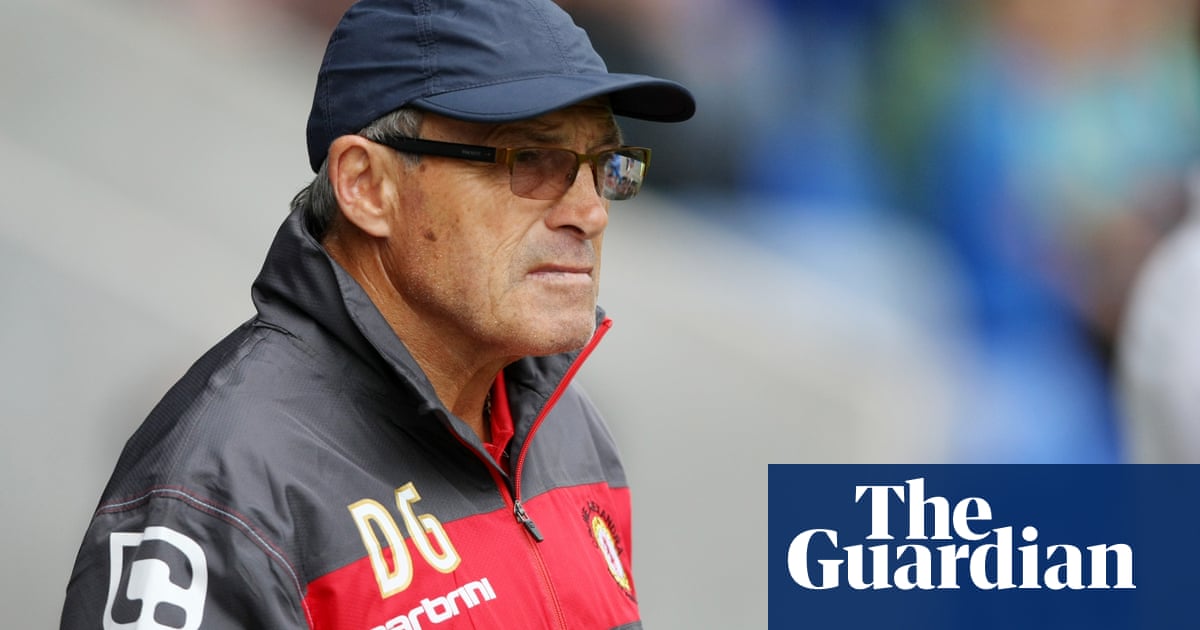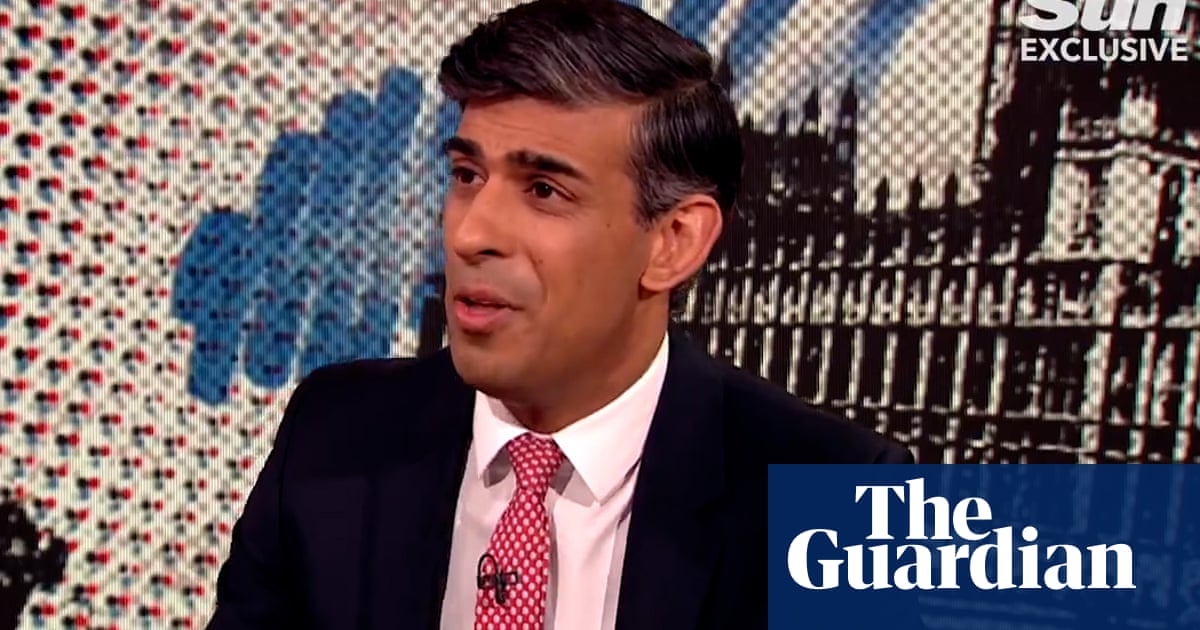
The Football Association, Premier League and leading clubs have issued formal apologies after a landmark inquiry said that generations of young footballers suffered horrific sexual abuse because of the wholesale absence of child protection policies, ignorance and naivety.
Led by Clive Sheldon QC, the inquiry found the FA culpable of “institutional failure” at its delay in introducing safeguarding after 1995, when Barry Bennell and some high-profile abusers in other sports had already been prosecuted and convicted.
“The FA acted far too slowly to introduce appropriate … child protection measures [from 1995]. These are significant institutional failings for which there is no excuse. During this period, the FA did not do enough to keep children safe.”
Bennell’s abuse of the footballer Andy Woodward was first reported by the Guardian in 2016, prompting hundreds more victims to come forward, police investigations and convictions, and the FA to set up the Sheldon inquiry.
The 700-page Sheldon report was acknowledged by the leading football institutions and the FA agreed to accept all its key recommendations, mainly around safeguarding. “Today is a dark day for the beautiful game,” said Mark Bullingham, the chief executive of the FA. “One in which we must acknowledge the mistakes of the past and ensure that we do everything possible to prevent them being repeated.”
But Ian Ackley, a victim of Bennell’s abuse, and some other survivors criticised the strength of those recommendations, arguing that such measures should have been introduced immediately after the scandals emerged in 2016.
There was also widespread outrage at the report’s revelation that Dario Gradi, the veteran coach who worked alongside Bennell at Crewe, told Sheldon in an interview “that he did not consider a person putting their hands down another’s trousers to be an assault”. Gradi regarded it as “petty touching”. Sheldon stated that he told Gradi it was an assault, “and he then accepted that”.
The inquiry identified failures to act adequately on complaints or rumours of sexual abuse at eight professional clubs, including Chelsea, Aston Villa, Newcastle United, Southampton, Peterborough – and at Manchester City, Crewe Alexandra and Stoke City, where Bennell was a youth coach. Sheldon found that in general, football and the young people who played the sport were left vulnerable to abuse by an absence of a safeguarding culture, that victims were bullied, scared or manipulated into silence, and very few specific reports of abuse were made within clubs, or to the FA.
Before 1995, Sheldon said the FA did “nothing proactive to address safeguarding and protect children from child sexual abuse in the sport”. There was no guidance, training or general awareness of child protection issues from 1970 to the mid-1990s, and people working in football “did not pick up on the signs of potential abuse”.
However Sheldon absolved the FA from criticism for those decades in which the sport had no child protection in place for its young players, placing that in the context of general attitudes at the time. “I do not consider that the FA’s inaction during this period is blameworthy. For most of this period, child abuse was generally seen as something which occurred within the family setting or in residential environments, and not within the world of sport.”
Sheldon added, however, that where incidents of abuse were reported at clubs, “their responses were rarely competent or appropriate”, and where there were “warning signs”, such as rumours of inappropriate behaviour, staff often missed them or took no action.
“This was usually out of ignorance or naivety. There was often a feeling that without ‘concrete evidence’ or a specific allegation from a child, nothing could, or should, be done, and so there was a reluctance to investigate or monitor, let alone confront the perpetrator and interfere with his actions. As a result, in many cases, perpetrators were able to hide within football, and use their positions, to ruin the lives of many children.”
During two spells at Crewe, Bennell seriously sexually abused young players, including Woodward. Considering disputed accounts of what senior people at the club knew of Bennell, Sheldon concluded that they did not receive any specific reports of abuse, a conclusion also reached by Cheshire constabulary.
However, Sheldon said that he did believe that concerns about inappropriate behaviour, including boys staying at Bennell’s house, had been discussed by the then chairman Norman Rowlinson, director John Bowler who succeeded Rowlinson as chairman, and another director, Hamilton Smith.
“I am also satisfied that, during Bennell’s time at the Club, there were rumours circulating about [Bennell] and his sexual interest in children which were heard by some of the Club’s staff, including Dario Gradi.” Sheldon said the club “should have done more to check on the wellbeing of the boys”, and monitored Bennell’s activities.
Similar criticism was levelled at Manchester City, where Bennell was associated as a coach in the early 1980s, and Stoke City, where he went after he left Crewe in the early 1990s.
Chelsea were found to have given no protection to a young player who reported abuse by the youth coach Eddie Heath in 1975. Sheldon said he could not decide whether Gradi, who was then the assistant manager at Chelsea, informed the club’s acting manager, Ron Suart, of concerns raised at a meeting with the player’s father. Either way, Gradi’s or Suart’s response was inadequate, he found.
“Aston Villa FC should have reported disclosures about sexual abuse by [the youth coach] Ted Langford to the police when his role as a scout was terminated in July 1989,” the report said.
Newcastle delayed acting on reports of abuse by George Ormond, who was convicted in 2018 and sentenced to 20 years in prison; he remained at the club for “many months” after the reports were made.
Peterborough and Southampton were also aware of rumours about the behaviour of their youth coach Bob Higgins, Sheldon found, but failed to take steps to monitor him: “Had Higgins been properly monitored this might have prevented some of his abuse of young players.”
Sheldon also highlighted the lack of criminal background checks on adults working with young children. Frank Roper had criminal convictions in 1960, 1961 and 1965 but was still heavily involved in youth coaching, attached to Blackpool FC, and serially abused young players including Paul Stewart, one of the victims who has spoken out about the abuse.
While recognising the FA’s overhaul of child protection after 2000 and substantial improvements since, Sheldon made 13 recommendations for further improvements. These include: having full-time, qualified safeguarding officers at Premier League and Championship clubs and qualified officers in League One and League Two clubs spending a minimum 50% of their time on safeguarding; for a member of the FA board to be designated “children’s safeguarding champion”; for the FA to develop a five-year strategy “to support the voice of children”, widen spot checks of amateur clubs, have a “national day of safeguarding in football” and publish an annual safeguarding report.
The Offside Trust, which is run by survivors, said in a statement: “We are deeply disappointed that an opportunity to create a world-class standard of child protection and safeguarding in sport has been missed.
“The recommendations are ones which would have been blindingly obvious to anyone within a few weeks of the scandal breaking. The FA should have immediately made these most basic of changes around training, awareness, spot checks and transparency without waiting for a 700-page report.”
The FA, despite Sheldon’s conclusion that its inaction had not been “blameworthy”, issued a “heartfelt apology” to the survivors and appeared to accept some responsibility for the abuse not having been recognised and prevented.
The Premier League and EFL also issued apologies for the abuse, and said they would be implementing the report’s recommendations. Manchester City, Newcastle, Southampton and Peterborough issued statements apologising to the victims; Southampton said: “For a professional football club not to prevent this abuse or be able to provide support for anyone speaking up to report it, is inexcusable.”
City, who published an inquiry by Jane Mulcahy QC into the abuse perpetrated at the club by Bennell and two other historical abusers, John Broome and Bill Toner, said they had set up a scheme for survivors in 2019 which offers compensation, paid counselling and personal apologies from a senior board director.












